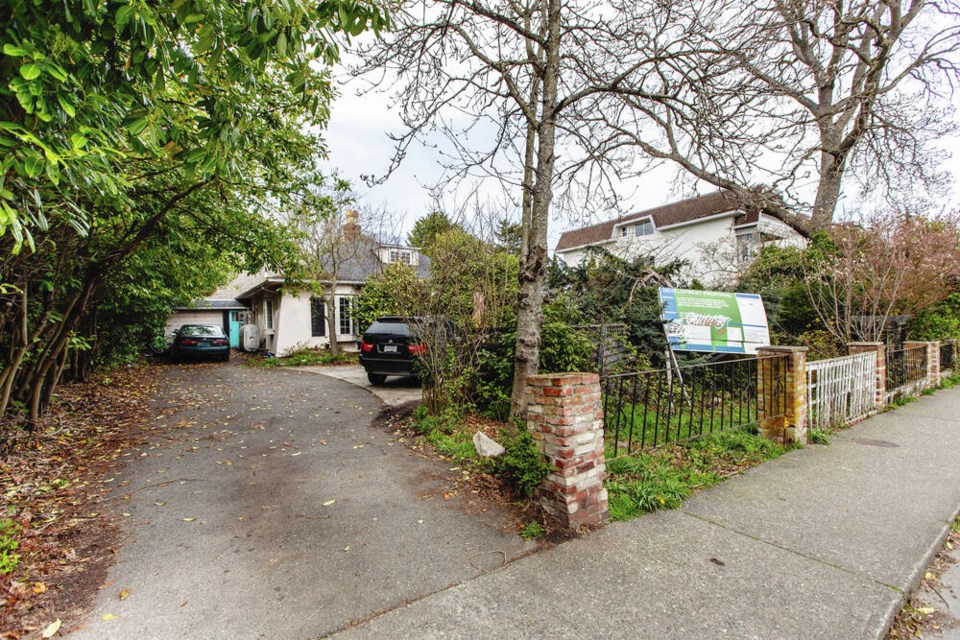It was just another mid-sized housing project on a council agenda, but when Oak Bay council rejected the 14-unit project last week, it underlined for many the reason the province is preparing to step in and take away some of the permit powers municipal governments have to approve housing construction.
Housing Minister and Attorney General David Eby has said the government is considering introducing legislation and regulatory changes this fall that could take the final decision-making authority for housing-permit approvals out of the hands of local government.
“This is why the province is stepping in — Minister David Eby is saying, come the fall, the hammer’s going to fall,” said Kim Colpman, chief executive at Large & Co., the company that had proposed the Quest building at 2326 Oak Bay Ave. The project has been in the works since 2017. “I believe he thinks they’re not doing their job to get houses to market,” she said.
“The noise we’re hearing from the community isn’t really about this project, it’s about what’s happening in general in the municipalities, in particular Oak Bay, about getting housing approved and on the table for people to buy and get the housing crisis under control.”
In a statement provided to the Times Colonist, Eby singled out Oak Bay as having to change.
He said people are moving to the province at a level not seen in 30 years, and municipalities have to examine their processes and decision-making to accommodate them.
“For a community like Oak Bay, meeting this challenge includes fundamental things like ensuring that secondary suites are legal, and considering how and where to approve multi-family housing if proposals like [Large & Co’s Quest building] are non-starters,” he said. “Every city faces challenges, and provincially we have to do our work as well to support rapid housing approvals. Working together, we can respond to this challenge.”
The region as a whole has been trying to respond to the increased demand. Last year, Greater Victoria’s residential construction sector broke a 45-year-old homebuilding record with 4,809 new homes started. The old record was 4,439 set in 1976.
Casey Edge, executive director of the Victoria Residential Builders Association, said the numbers look good, but the region is still digging itself out of a housing deficit, and it’s not enough to just keep up with demand.
He also noted some municipalities, like Oak Bay, are not pulling their weight. “The Housing Needs Reports, released last year, reveal the challenges in Oak Bay, the Peninsula and other municipalities. Even non-profits avoid proposing affordable housing projects in Oak Bay due to obstruction and high costs,” said Edge. “As for the Peninsula, developers must navigate three different sets of costly policies and regulations.”
The region’s housing-creation powerhouses are Langford and Victoria, which last year started 1,741 and 1,204 new homes respectively.
Oak Bay, by comparison, started 27, the lowest in the core — Victoria, Saanich, Esquimalt, View Royal and Oak Bay — by far. Esquimalt started 60 last year.
“Canada is the fastest-growing country in the G7, with plans to welcome 1.3 million new Canadians in the next three years, and that was before the emergency of assisting refugees fleeing the war in Ukraine,” said Edge. “We have a responsibility to provide housing and many CRD municipalities are shirking that responsibility, while continuing to add fees and costs.”
Colpman’s biggest obstacle in Oak Bay wasn’t fees, but changing goalposts, she said, noting the company changed the design of the building based on earlier feedback but it still didn’t suit. The project was approved by the municipality’s advisory committees and staff, she said.
“We’ve presented something that complies with their own policy and official community plan. So, when you come to the table with basically what they’ve asked for in their policy, and they say ‘no,’ where do you go from there?” she said.
Oak Bay council was split on the project. Though most councillors liked the design and look of the building, some felt it was too big for the site, or worried about traffic problems and the noise from excavation and construction.
Coun. Andrew Appleton, who wanted to move the project to a public hearing, advised his colleagues to consider the need for housing in the region. “We are at a juncture as a community where in my view, we need to cast ourselves very carefully in thought toward where the housing that is so desperately required in the region is going to come from,” he said.
Appleton noted that the housing shortage is more dire than when the Quest proposal first came to council in 2017.
Coun. Hazel Braithwaite, who put forward the motion to reject the project, said it was too large. “I agree that we need housing, however, I really [think] we need to consider how the housing fits into the community,” she said.
A number of councillors suggested the project be scaled down, possibly to a small row of townhouses.
Colpman said all options are still on the table, but she noted that the project is on Oak Bay Avenue on and designated for multi-family. “It would be irresponsible in my opinion to put three townhouses there to house three families in multimillion dollar townhomes,” said Colpman. “This is a built-out city and we have to get creative on the land that becomes available.
“There’s not a lot of it left. They can go crazy in Langford where they have space, but we don’t.”



